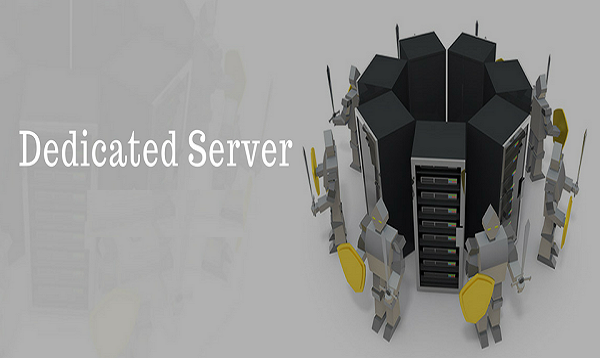One of the most compelling reasons for adopting a dedicated server for business applications is the extensive control over the hosting environment. In contrast to a shared hosting arrangement, the dedicated server is designed exclusively for a single user who has freedom to implement any type of configuration and select an operating system of his or her choice.
As per the old cliché, there are always two sides of the coin and it also applies to the amazing advantages of hosting your website with help of a dedicated server. Users are responsible for making stringent security arrangements while enjoying total remote access to the user interface and availability of a remote desktop.
It is understood that the responsibility of securing a dedicated server lies equally on the shoulders of host and user in a hosting ecosystem. The security measures must be focused on safeguarding the server and storage resources from a myriad of online threats, viruses, malware, DDoS attacks and so forth. Prevention of a security breach or an unauthorized intrusion attempt is possible only by a well-planned security strategy that addresses a wide spectrum of security threats and disasters.
In order to appreciate the far reaching implications of security flaws, one should be aware of the three most critical threats to server security in addition to the solutions for handling these events.
Securing a hosting service against DDoS threat
DDoS or distributed denial of service is a highly damaging attack which is aimed at crashing the website by flooding the same with a huge number of concurrent requests. This particular cyber crime is certainly more damaging than routine credit card hacks or data intrusion activities.
DDoS attackers are well aware of the fact that for any growing or an established organization, the dedicated server is one of the most precious resources. Server failure is inflicted by leveraging a multitude of malicious machines that are programmed to shower servers with requests from all quarters. DDoS Attack is most often a large scale and usually irreparable damage of the business and image of the organization.
The first and foremost defense against a DDoS attack is provided by a dedicated server itself. If one has built a server with enterprise grade hardware from reputed brands and made sure that there are abundant system resources available for the web applications, then a DDoS attack can be prevented.
Server monitoring facility to check for sudden rise in traffic and availability of a firewall defense to thwart malicious data are significant requirements for securing your web presence from DDoS attacks.
Security concerns due to malware
Ability of the dedicated server to facilitate installation of a wide spectrum of application exposes itself to infections from malware. Malware is a broad term to indicate presence of spyware, viruses, Trojan, or variety of other worms that are capable of intruding and stealing vital information from mission critical database.
Scanning of each and every file can provide immunity against malware that camouflages itself within legitimate applications or scripts. Your hosting provider should be able to offer real-time server monitoring and a comprehensive hosting plan that guarantees continuous vulnerability scanning.
The right hosting service provider is known to regularly conduct health checks for scrupulous ads and imperceptible frames. No application or software should be uploaded on the server unless it is made to undergo stringent testing on an independent and secure home device.
Password breach
There is always an impending risk of a password breach with ongoing sophistication and use of the latest hacking methods by modern cyber criminals. A password can be the most effective vulnerable and tool if it is not backed up with necessary security arrangements. Password security is directly proportional to its strength.
Since a large number of users are habituated to coin simple and weak passwords, hackers are able to get entry into the system by hacking such passwords. It must be noted that new generation of hackers have sophisticated tools at their disposal and can easily break in into the server environment to steal sensitive information. All they need is knowledge of passwords and not any advanced software to hack your system.
While coining a password, one must know elements of a strong password. A good password must consist of upper and lower case letters, digits, and special characters. Never use same password for all elements of the dedicated server including FTP account, control panel and mail-access to name a few.
Every login must be executed through a SSL connection for greater security and avoid accessing the control panel of host by using an email or a link. Instead, you should follow the manual process for entering the web address.
In conclusion
Even though the three essential features of a secured dedicated hosting are elaborated in this article, you need to understand that in the absence of the host’s exclusive technical support, it would be difficult to implement majority of the elements that are related with security and control.
For Interesting Topics : How To Use Dedicated Server?






 Live Chat
Live Chat